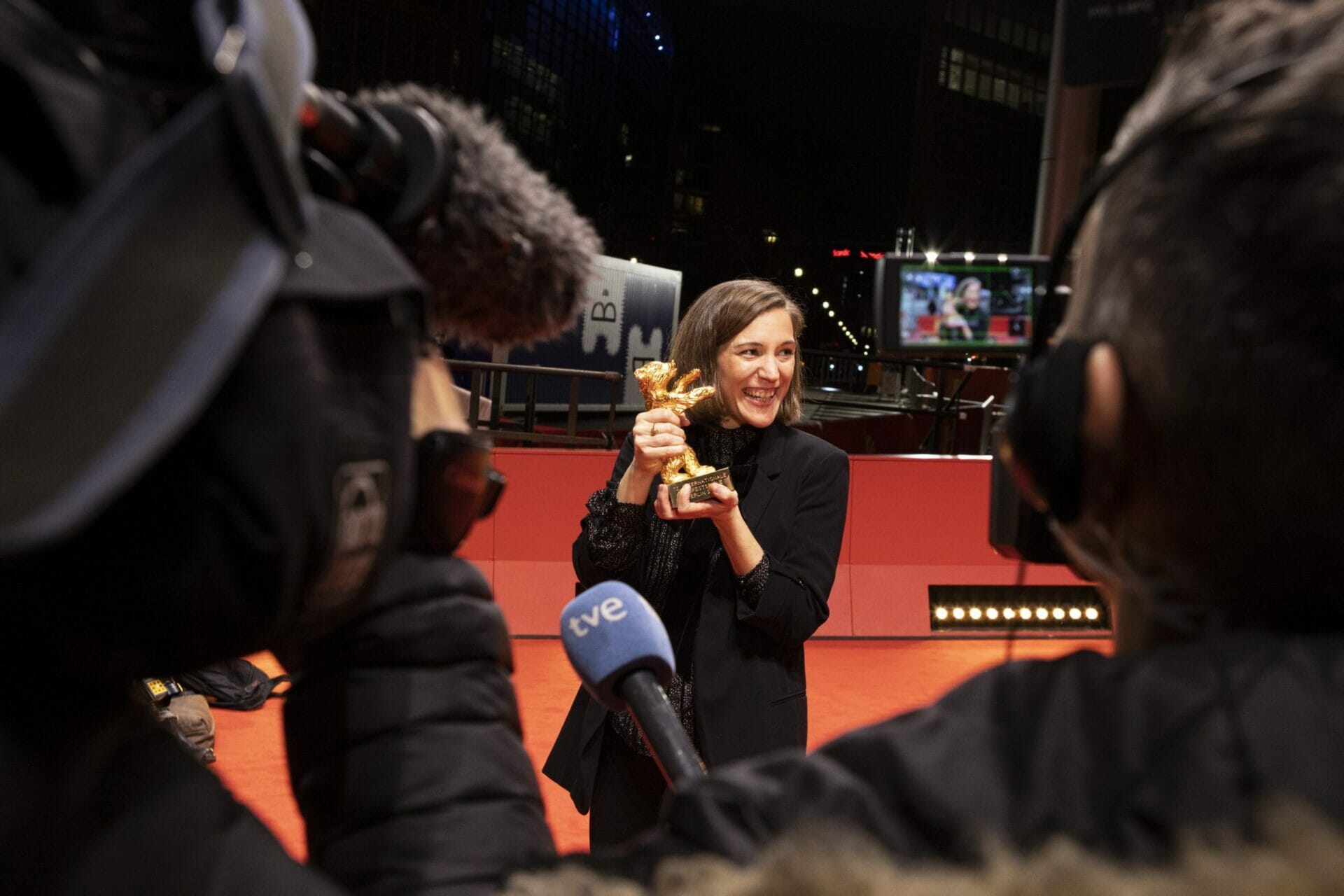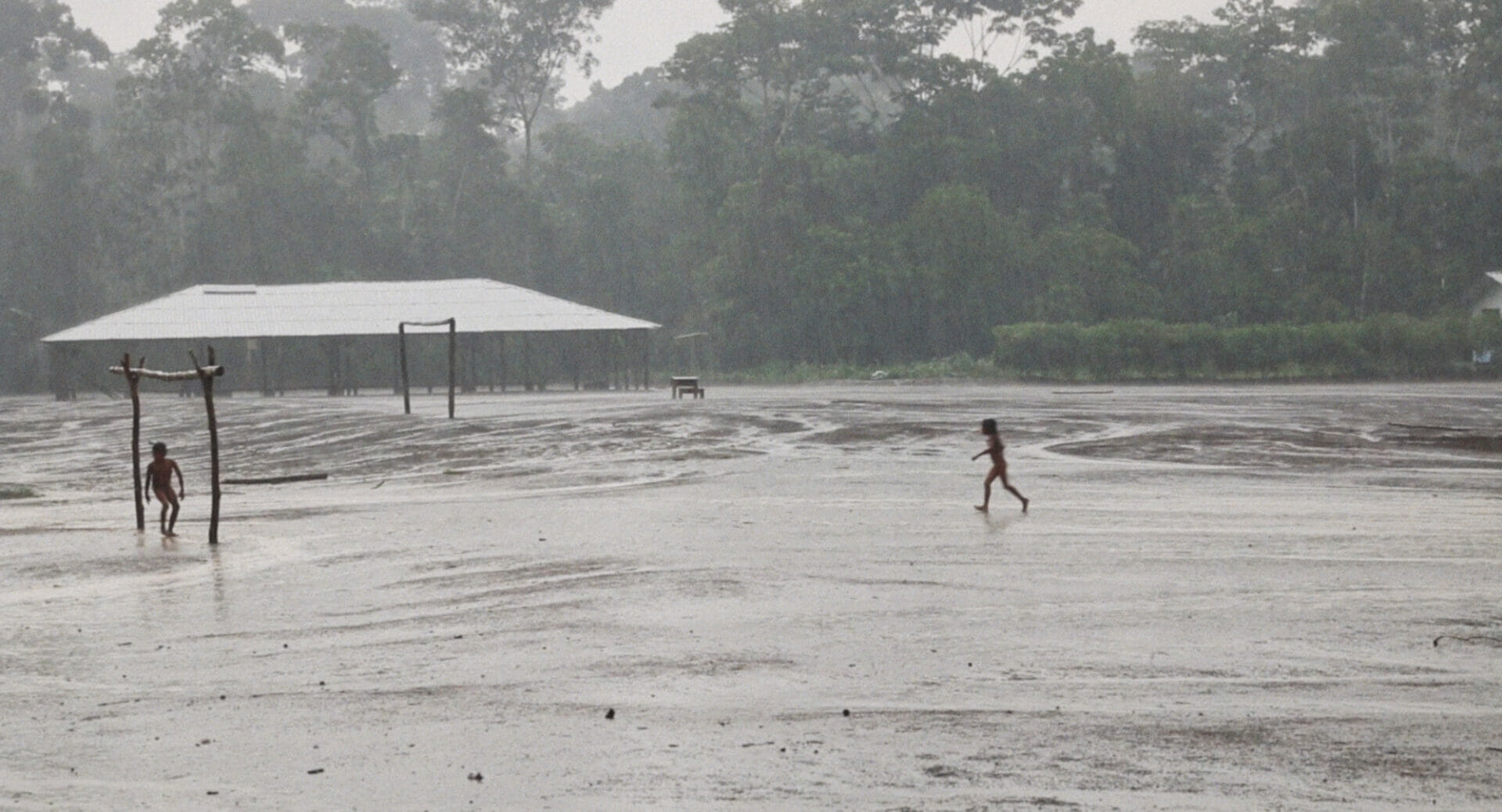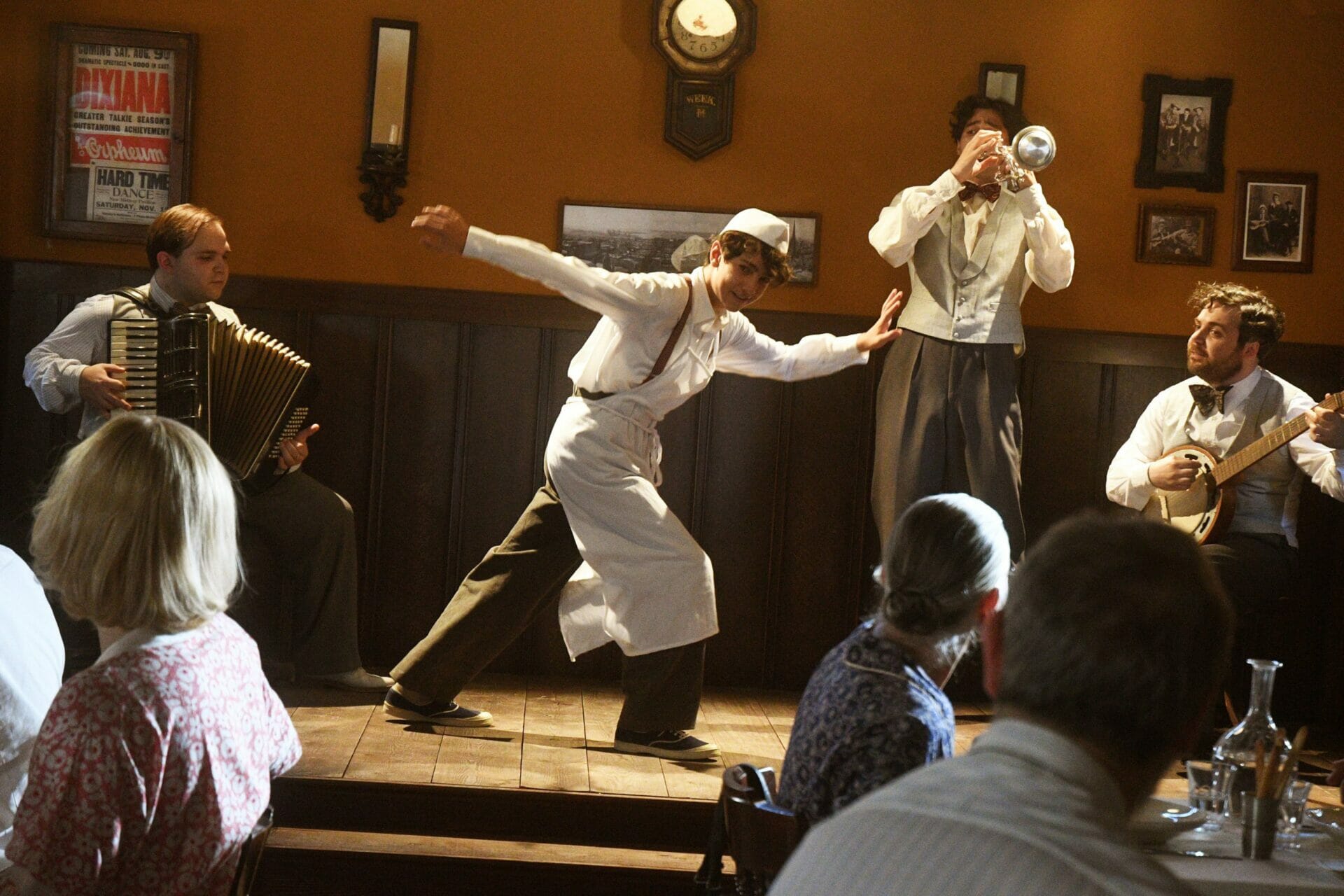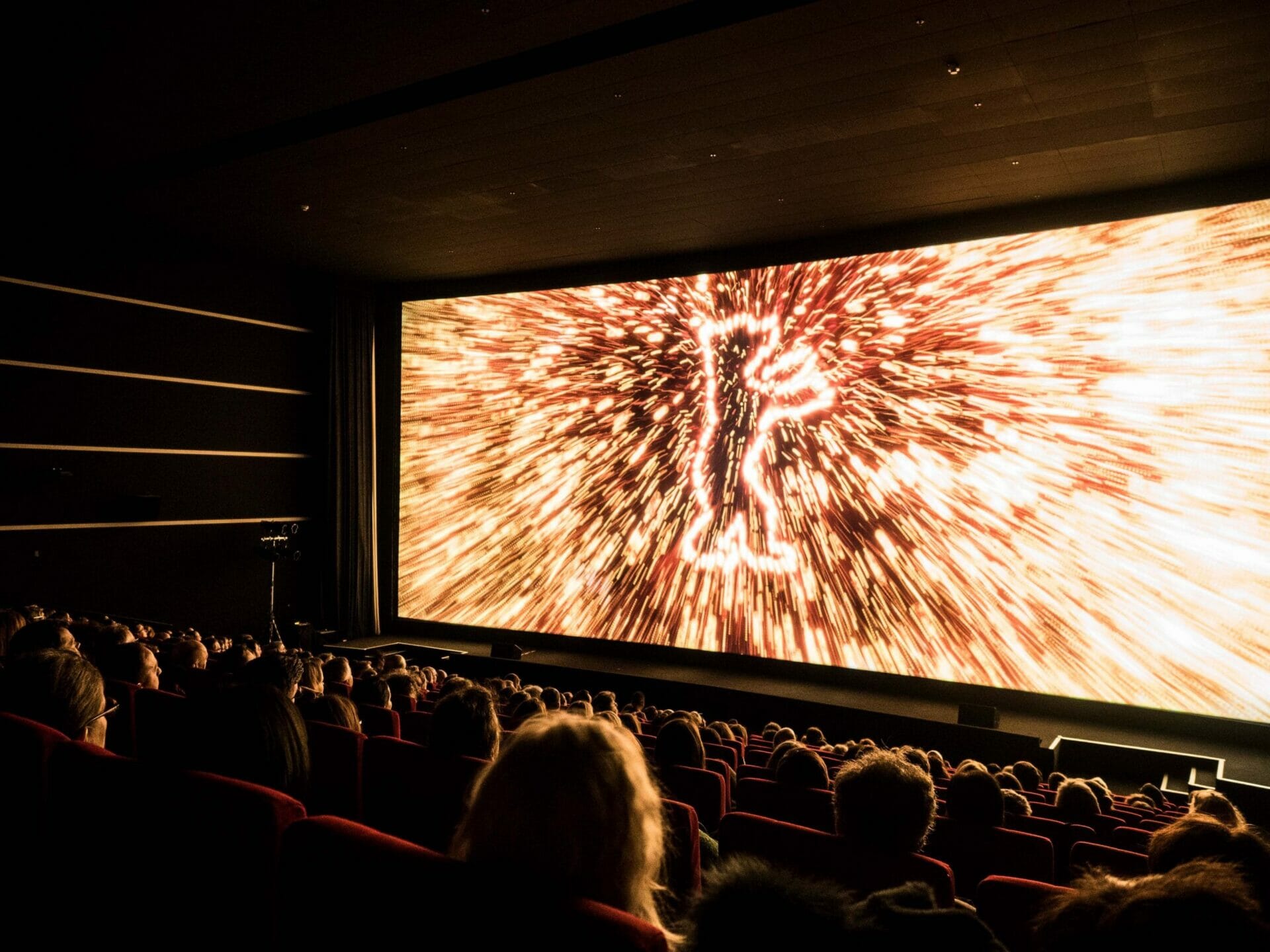
On Sunday the 20th of February, the 72ndBerlin International Film Festival came to an end. The concluding event took place in the cinema called Cineplex Titania, where the Berlinale was held for the first time in 1951. The directors Mariette Rissenbeek and Carlo Chatrian thanked the public once again for attending the festival. They also renewed their pleasure in having been able to host a collective ‘in presence’ event. Despite the ruling restrictions due to the pandemic, during this year’s Berlinale 156,000 Tickets were sold and around 1,400 Journalists from 65 different countries came to Berlin for the occasion.
On Wednesday 16th, the winners of the Bears were announced, and along with them also the other prizes. In the section competition, the jury guided by M. Night Shyamalan assigned six out of the nine prices to female artists: Carla Simòn, Natalia López Gallardo, Claire Denis, Meltem Kaptan, Laila Stieler, Laura Basuki. The great absentee of the evening was Isabelle Huppert. Due to Covid, she couldn’t come in person to pick up the Honorary Golden Bear for her unique artistic achievements. It’s noteworthy that for the second time, a former Berlinale Co-Production Market project won the Golden Bear.
Golden Bear to Alcarràs
The Catalonian family saga Alcarràs by Carla Simón, a Berlinale Talents Alumni, won the Golden Bear. Based on her own family history, director Simón managed to show with great sensitivity the intricate dynamics of a large family that has to face a big change.
The story tells about the final summer in which the protagonist’s family will pick peaches from the orchard where they have worked for generations. The landowner has, in fact, decided to get rid of the trees and install solar panels, which are more lucrative. Each character in the movie reacts differently to this news, but, as in a chain, it also affects all the others. Environmental and labor issues are shown through the eyes of the local people. Many actors involved in the movie are indeed non-professionals living in the area where the story is set.
Silver Bear Grand Jury Prize to The Novelist’s Film by Hong Sangsoo
The Silver Bear Grand Jury Prize went to The Novelist’s Film (So-seol-ga-ui yeong-hwa) by Hong Sangsoo. After winning the best screenplay last year, Hong Sangsoo’s twenty-seventh feature celebrates the importance of being truthful in the dishonest world of film, or more generally on the art circuits. Sangsoo’s last work, with its typical long dialogues and distinguished by neat black and white photography, immerses the spectator into Seoul’s streets and involves him in fortuitous and revealing encounters.
Silver Bear Jury Prize to Robe of Gems
Isabel wants to reconnect with her routes. To do so she decides to go back to her family’s mention in rural Mexico. However, once there she realizes how everything has changed since her mother has died. The research for the sister of the long-time domestic worker, who has disappeared, and the desire to be part of something she doesn’t understand anymore, leads her on dangerous paths. As the main character of Robe of Gems, also the director Natalia López Gallardo reflects on how reality is multifaceted, like a gem. The jury awarded this drama with the Silver Bear.
Silver Bear for Best Director to Claire Denis for Both Sides of the Blade
Claire Denis, who has worked with masters like Wim Wenders, Costa-Gavras, and Jim Jarmusch before directing her own movies, won the Silver Bear for best directing with Both Sides of the Blade (Avec Amour et Acharnement). A classic French film one might argue. A triangle of love and friendship on the verge of getting out of control. However, as Denis herself argued in the awarding press conference, good directing is something you can not do without great actors. And indeed Juliette Binoche (Sara), Vincent Lindon (Jean) and Grégoire Colin (François) makes this movie one of a kind. The tension among the three is tangible at any given point. The details loving photography from Eric Gautier does the rest.
Rabiye Kurnaz vs. George W. Bush: two prices given to two exceptional women
Meltem Kaptan won the Silver Bear for Best Leading Performance in the movie Rabiye Kurnaz vs. George W. Bush, as already predicted by a journalist on the day of the movie’s premiere. While Laila Stieler, who during the awards press conference admitted she didn’t even know such a prize existed the last time she attended Berlinale, won the Silver Bear for Best Screenplay. Thanks to their contribution Rabiye Kurnaz vs. George W. Bush by director Andreas Dresen gained such power as to conquer everyone’s heart at the festival.
Murat Kurnaz is a young man who grew up in Bremen and gets unjustly imprisoned in Guantanamo for four years. Rabiye, Murat’s mother, is an exceptionally vital and determined woman who is ready to confront anything and anyone, even George W. Bush, to have her son back.
As a screenplay writer, Leila Stieler argued in the overfilled press conference before the premiere of the movie: “The victory of patience is not sexy”. Therefore, the only way to make this story appealing to the public and bring across a bit of optimism was to focus on love: universal maternal love.
To prepare for the role, the leading actress Meltem Kaptan spent much time with Rabiye, talking with her on the phone and speeding around Bremen in her sporty car listening to loud pop music. In her interpretation, Kaptan takes advantage of her experience as a comedian to master an incredible tempo but at the same time manages to give space to pain and anger.
Silver Bear for Best-Supporting Performance to Laura Basuki in Before, Now and Then
In Nana (Before, Now and Then), by Kamila Andini, Laura Basuki plays Ina, a young and independent butcher. This young woman, who initially seems to be the lover of Nana’s (Happy Salma) husband, soon reveals herself as the protagonist’s only ally. As the two women get to know each other better, Nana seems also to understand more about herself. This leads her to take her existence, marked by the Indonesian war of independence, into her own hands.
Both mirroring and complementing the leading performer, Laura Basuki perfectly succeeds in what every supporting actress should do: support Nana in becoming capable of taking decisions so far not even imaginable. That is why, but not only, she deserved the Silver Bear for Best-Supporting Performance.
Silver Bear for Outstanding Artistic Contribution to Rithy Panh and Sarit Many for Everything will be OK
The Silver Bear for Outstanding Artistic Contribution went to Rithy Panh and Sarit Many for Everything Will be Ok. This apocalyptic fairy tale demonstrates that an original visual narrative can prove successful. After winning the Documentary Prize in 2020, the Cambodian director was back at the Berlinale with the only animated movie.
The narrator’s smooth voice, documenting an unusual revolution, leads the spectator through a dystopic reality where all sorts of animals, led by a boar, have taken power over humans. Through the creation of a whole new universe of clay figures, sampled animal sounds, and the juxtaposition of archival material about human brutality, Rithy Pahn seems to argue that all utopias are doomed to fail. During the premiere’s press conference he defined his workflow as fun and experimental, based on freedom.
Special Mention to Drii Winter (A piece of Sky) by Michael Koch
The Special Mention of the Jury went to Drii Winter (A piece of Sky) by Michael Koch.
This young directors’ work is however not new to the Berlinale. In 2009, in fact, his graduation film Polar was shown in the section Perspektive Deutsches Kino and won different prizes including the German Short Film Award. In Drii Winter, unbelievably beautiful scenarios of the Swiss Alps complement the ordinary lives of the non-professional cast. Along with the changing seasons, the love developments of a couple unfold. Marco and Anna, despite the doubts of the small community they live in, decide to get married and share the simple life of the mountains until tender and peace are substituted by unsettling Marco’s impulses.
See you in 2023
As the spotlights slowly fade on Potsdamer Platz, the dates of next year’s festival had already been announced. The 73rd International Film Festival Berlin will take place from February 16 to 26, 2023. The organizers hope next year to host a festival at its full capacity. Moreover, they also hope that the collateral events like the European Film Market (EFM), the Berlinale Co-Production Market, Berlinale Talents, and the WCF Day of the World Cinema Fund will take place in person, and not online as this year.
Now we have 360 days to catch up with all the movies of this year’s Berlinale and look forward to the next one.








